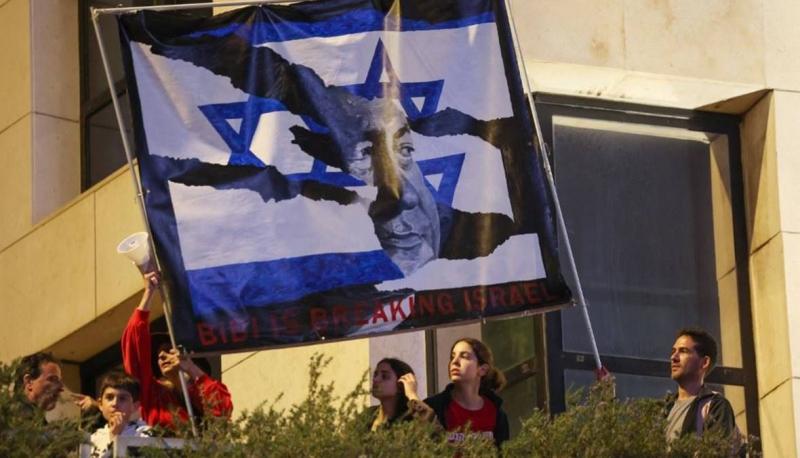If you missed the recent headlines or saw them but thought you might have misread them, let me repeat: the Middle East, despite all its tribulations, wars, and wounds, still has a chance for "change for the better." These enthusiastic words are not mine; they were repeatedly echoed by the U.S. Ambassador to Saudi Arabia, Michael Ratney, during an exclusive interview with our talk show "Frankly Speaking" this week. Ratney acknowledged that the term "historic" has become overused, yet insisted on using it to describe the proposed new agreement between Saudi Arabia and the United States, which would lead to a documented security agreement, normalization of relations, integration of Israel into the region, and ensuring the establishment of a state for the Palestinians. He explained that "all elements... are of extraordinary value, but the real value lies in bringing them all together." Such comments from a U.S. ambassador are significant. Therefore, they were quickly translated into Arabic and widely shared online.
Moreover, Ratney is not just an ambassador; before his work in Riyadh, he served in the U.S. Embassy in Israel and dedicated almost three decades of his career to attempting to resolve Middle Eastern conflicts and combat violent extremism. A few days after that interview, U.S. President Joe Biden stated that it was time to end the Gaza war and presented details of a reasonable peace plan that includes three phases, beginning with a preliminary ceasefire for six weeks to secure the release of Israeli hostages and Palestinian prisoners, followed by negotiations for a permanent cessation of hostilities, and concluding with the reconstruction of the devastated Gaza Strip. Some may consider, including myself, that this step has come too late. However, let us also be realistic; a delay in this step is better than no step at all.
There are those who believe they serve the Palestinian cause by burning American flags and boycotting hamburgers and caramel latte coffee. However, they are delusional if they believe that any peace agreement or regional stability can be achieved without utilizing the reward-and-punishment approach that only the U.S. can wield in this context. In reality, America remains the most significant superpower in the world, and only it has the ability to influence Israel.
Speaking of Israel, after eight months since the onset of this war, Benjamin Netanyahu and his small war cabinet have achieved little more than causing famine and killing nearly 40,000 Palestinians, most of whom are civilians, women, and children, alongside the complete destruction of Gaza's infrastructure. They have failed to achieve any of their declared goals for this war, as the hostages remain captive and Israel is not any safer than it was before the war. Regarding the elimination of Hamas, the Israeli Prime Minister and his far-right government may have planted the seeds and used the necessary fertilizers for it to grow and transform into a second version of Hamas in future generations.
In fact, this should not be new for Netanyahu, but rather a continuation of his policy over the past sixteen years, which aimed to empower Hamas and undermine trust in the legitimate Palestinian Authority in the West Bank. I invite you again not to take my word for it but to look at what columnist Tal Schneider wrote in the Times of Israel in an op-ed published the day after the October 7 attack, titled "Netanyahu has been bolstering Hamas for years, and now it has exploded in our faces."
The same newspaper also recently noted that Saudi Arabia is removing antisemitic materials from educational curricula. This should not come as a surprise, as it is not new, and the excellent work done by the Ministry of Education in the Kingdom has rarely been commended until now. In fact, reforms have been in place in Saudi Arabia since 2016, as the Kingdom works to ensure that its entire ecosystem reflects the perspective it has long adopted: that the problem with Israel is not religious but rather a territorial dispute. Once this dispute is resolved, there will be recognition of the state and reconciliation with it, along with rewards for both sides.
Our newspaper, Arab News, has previously published reports celebrating Judaism as an integral part of our social fabric as Arabs; we were the first to wish the Jews "Shana Tova" or a happy new year, and we have published interviews and articles from prominent rabbis and community leaders, from Ronald Lauder to President Biden's Special Envoy for Monitoring and Combating Antisemitism, Deborah Lipstadt. However, in reality, it is the actions of the Israeli side and the rhetoric it adopts that require monitoring and accountability.
As New York Times columnist Tom Friedman wrote in an article published last month, Saudi Arabia and Israel are "swapping places" in terms of the U.S. attitude toward them. While elected Israeli officials call for bombing Gaza with nuclear weapons, citing passages from their Torah that they claim justify killing women and children and even animals, Saudi officials are working to push the peace process forward, investing in artificial intelligence, and sending the first Arab Muslim woman astronaut into space.
Saudi Arabia has its eyes set on 2030 and is determined to continue advancing, while inviting its old partners, such as the United States, to be part of this journey. Israel also has an outstanding invitation, as it could benefit significantly from joining the 2030 club, where Saudi Arabia could legitimize the state and work to secure recognition from the Arab and Islamic worlds, in addition to its immense diplomatic weight and vast international relations network to support the legitimate Palestinian Authority to become a peaceful and prosperous neighbor to Israel. It simply needs to choose between remaining in 1967 or riding the fast train to 2030 with the rest of us. Israel merely needs to end hostilities, trust Biden’s peace plan, and acknowledge that it cannot guarantee its own security or put an end to its isolation—which is increasingly growing day by day—without allowing for the establishment of a legitimate Palestinian state.




